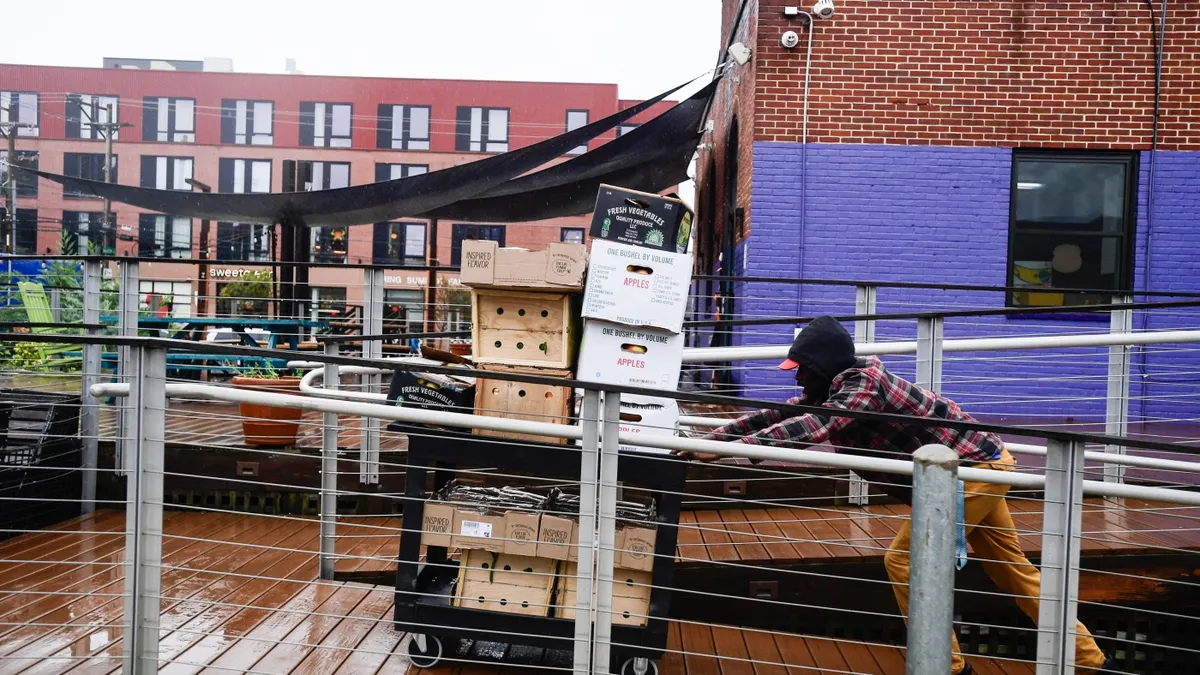
On Saturday, more than 40 million Americans who depend on federal food assistance found themselves in a state of uncertainty regarding the security of their benefits. A federal judge in Rhode Island issued a ruling on Friday, mandating the White House to utilize contingency funds to support these essential benefits. However, the implications of this decision remain unclear, especially in light of a separate ruling from a judge in Massachusetts, which instructed the administration to devise a plan for utilizing emergency funds by Monday.
The ongoing funding impasse has put nearly 1 in 8 U.S. residents who rely on the Supplemental Nutrition Assistance Program (SNAP) at risk of experiencing a temporary lapse in their assistance. Following Friday’s judicial decisions, President Trump announced he had instructed government lawyers to find a solution for funding SNAP benefits. He also noted that despite receiving immediate guidance, delays are expected as states work to distribute the funds.
SNAP, which was formerly known as food stamps, is recognized as the largest anti-hunger program in the United States. A coalition of Democratic governors and attorneys general is currently suing the federal government, asserting that the benefits cannot be legally suspended. Meanwhile, the Trump administration contends that extending benefits using emergency funds is not permissible, despite having done so during previous government shutdowns.
As congressional gridlock continues, states are actively exploring alternative support measures for residents who have recently lost their food aid. The situation has prompted a significant focus on local food banks.
Food bank administrators are sounding alarms about the potential public health crisis stemming from the loss of November SNAP benefits. Jason Riggs, the director of advocacy and public policy at Roadrunner Food Bank of New Mexico, has drawn parallels between the current situation and significant economic downturns, such as the recession 17 years ago and the onset of the COVID-19 pandemic. He emphasizes that while the need for assistance increases, the current context differs dramatically due to the absence of SNAP benefits.
In New Mexico, where more than 21% of residents receive SNAP benefits—the highest rate in the nation—the impending loss of assistance is particularly alarming. Riggs cautions that food banks are not equipped to serve as a safety net for a government program like SNAP, which can provide up to nine times the number of meals compared to the entire nationwide food bank network.
Central Texas Food Bank CEO, Sari Vatske, also highlighted the unique challenges posed by the shutdown, noting that unlike responses to natural disasters, where food banks can support one another, the current government shutdown affects all food bank operations concurrently.
Amid these challenges, businesses that collaborate with grocery retailers and restaurants to sell surplus or near-expired food at discounted prices, such as Too Good To Go and Flashfood, are stepping up their efforts. Flashfood CEO Jordan Schenck reported a notable increase in app downloads over the past few days, coinciding with heightened media attention on the looming SNAP cliff.
As the shutdown drags into its second month without a clear resolution, the Senate has recessed for the weekend, with critical issues like the SNAP cliff and the commencement of open enrollment for health insurance plans under the Affordable Care Act taking center stage. Congressional Democrats are focusing on healthcare as a key element of their shutdown strategy, urging Republicans to negotiate an extension of enhanced subsidies that are set to expire at the end of the year.
Maryland residents, including voters like Christina Thompson, are encouraging Democrats to remain steadfast in their position. Thompson expressed, "I think they should hold out as long as possible. It's clear whose shutdown this is." Meanwhile, Republicans assert that Democrats must first agree to fund the government before discussing healthcare subsidies.
Senate Majority Leader John Thune (R-S.D.) expressed frustration with the Democrats during a recent session, emphasizing that the consequences of the shutdown impact real people's lives, stating, "This isn't a political game. These are real people's lives we're talking about."
As the political battle continues, the future of SNAP benefits and the well-being of millions of Americans hang in the balance, underscoring the urgent need for a resolution to the ongoing funding crisis.